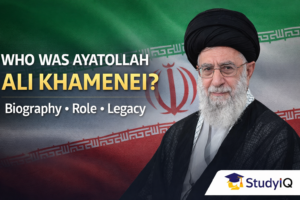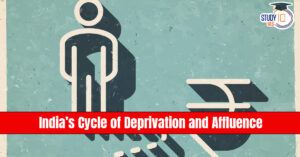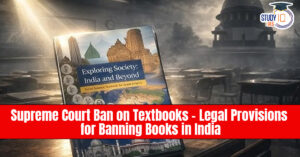Q7. Vijay was Deputy Commissioner of remote district of Hilly Northern State of the country for the last two years. In the month of August heavy rains lashed the complete state followed by cloud burst in the upper reaches of the said district. The damage was very heavy in the complete state especially in the affected district. The complete road network and telecommunication were disrupted and the buildings were damaged extensively. People’s houses have been destroyed and they were forced to stay in open. More than 200 people have been killed and about 5000 were badly injured. The Civil Administration under Vijay got activated and started conducting rescue and relief operations. Temporary shelter camps and hospitals were established to provide shelter and medical facilities to the homeless and injured people. Helicopter services were pressed in, for evacuating sick and old people from remote areas. Vijay got a message from his hometown in Kerala that his mother was seriously sick. After two days Vijay received the unfortunate message that his mother has expired. Vijay has no close relative except one elder sister who was US citizen and staying there for last several years. In the meantime, the situation in the affected district deteriorated further due to resumption of heavy rains after a gap of five days. At the same time, continuous messages were coming on his mobile from his hometown to reach at the earliest for performing last rites of his mother.
- What are the options available with Vijay?
- What are the ethical dilemmas being faced by Vijay?
- Critically evaluate and examine each of these options identified by Vijay.
- Which of the options, do you think, would be most appropriate for Vijay to adopt and why?
(Answer in 250 words, 20 Marks)
The present case reflects a dilemma faced by civil servants between their public office and that of private lives. Their is an disaster in the district which demands Vijay’s utmost commitment at the same time the passing of his mother and her last rites also demand his highest consideration.
Options available with Vijay
- Leave immediately for hometown to perform the last rites of his mother.
- Stay back in the district until the situation stabilizes, and then go to your hometown later.
- Hand over charge temporarily to a competent subordinate officer, coordinate remotely, and travel to hometown.
- Request temporary leave of absence from state government, with parallel delegation of responsibilities, balancing both duties.
Ethical Dilemmas faced by Vijay
- Personal duty vs Professional duty: Loyalty towards his late mother vs responsibility towards thousands of disaster victims.
- Emotional attachment vs Administrative responsibility: Family obligations vs constitutional duty as a public servant.
- Short-term grief vs Long-term public good: Fulfilling personal loss rituals vs ensuring lives of thousands are saved.
- Integrity vs Compassion Conflict: Staying true to oath of office vs compassion towards his only close relative (sister) and family traditions.
- Rule of Law vs Moral Responsibility: Legally, he can take leave, but morally he knows his presence is crucial in crisis.
Critical Evaluation of Options
- Option 1: Leave immediately for hometown
- Pros: Fulfils filial duty; provides emotional closure; respects cultural/religious obligations.
-
-
- Cons: Abandons leadership at critical juncture; hampers rescue operations; sets poor precedent; violates duty to public service.
-
- Option 2: Stay back until situation stabilizes
-
-
- Pros: Upholds professional duty, integrity, accountability; reassures people in crisis; maximizes welfare (utilitarian approach).
- Cons: Personal grief remains unresolved; risk of family/social criticism for neglecting last rites.
-
- Option 3: Hand over charge temporarily to subordinate and leave
-
-
- Pros: Balances personal and professional duties; chain of command ensures continuity; maintains trust if delegation is effective.
- Cons: Subordinate may lack experience in large-scale crisis; coordination gap may worsen relief.
-
- Option 4: Request temporary leave with formal delegation
-
- Pros: Legally sound; ensures accountability; combines integrity (seeking permission) with compassion (attending mother’s rites).
- Cons: Bureaucratic delays in approval; emergency may worsen in his absence; public perception of “abandonment.”
Most Appropriate Option
The most appropriate course would be a modified Option 2 + 3:
- Vijay should remain in the disaster-hit district until immediate rescue operations are stabilized. (showing integrity, public service, accountability).
- He can then delegate responsibilities to senior subordinates, set up coordination systems (war-room, digital communication), and proceed for his mother’s last rites as soon as possible.
- This ensures that he does not abandon citizens at their hour of need, while also fulfilling his personal obligations after ensuring a degree of stability.
Justification
-
- Kant’s Categorical Imperative (Duty Ethics): If every civil servant abandoned their post during crises for personal reasons, governance would collapse. Hence, his duty (Kartavya Dharma) is to prioritize citizens first.
- Rawls’ Theory of Justice (Fairness as Justice): From the “veil of ignorance” perspective, if one were to imagine being either a flood victim or Vijay, fairness demands prioritizing the most vulnerable (injured, homeless, poor) over personal rituals.
- Utilitarianism (Consequentialist ethics): Saving thousands of lives produces far greater good than attending immediate rituals.
- Virtue Ethics: Exhibits courage, prudence, selflessness, empathy for citizens, and compassion for family.
- Gandhian Trusteeship & Public Service Values: As trustee of public resources, he must place welfare of the weakest above personal grief.
- Values Reflected:
- Integrity → Not abandoning duty.
-
- Empathy & Compassion → Caring for both disaster victims and mothers memory.
- Accountability → Leading from the front in crisis.
- Balance & Prudence → Managing both personal and professional responsibilities in sequence.

 Who Was Ayatollah Ali Khamenei? Biograph...
Who Was Ayatollah Ali Khamenei? Biograph...
 The Cycle of Deprivation and Affluence
The Cycle of Deprivation and Affluence
 NCERT Textbook Controversy and Supreme C...
NCERT Textbook Controversy and Supreme C...




















